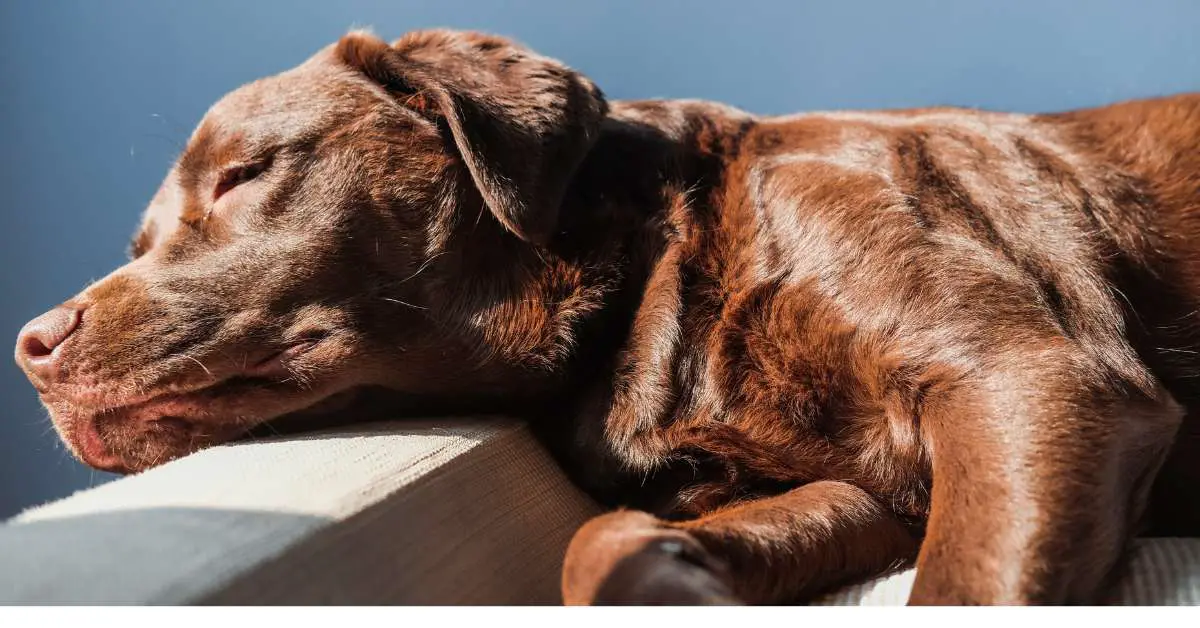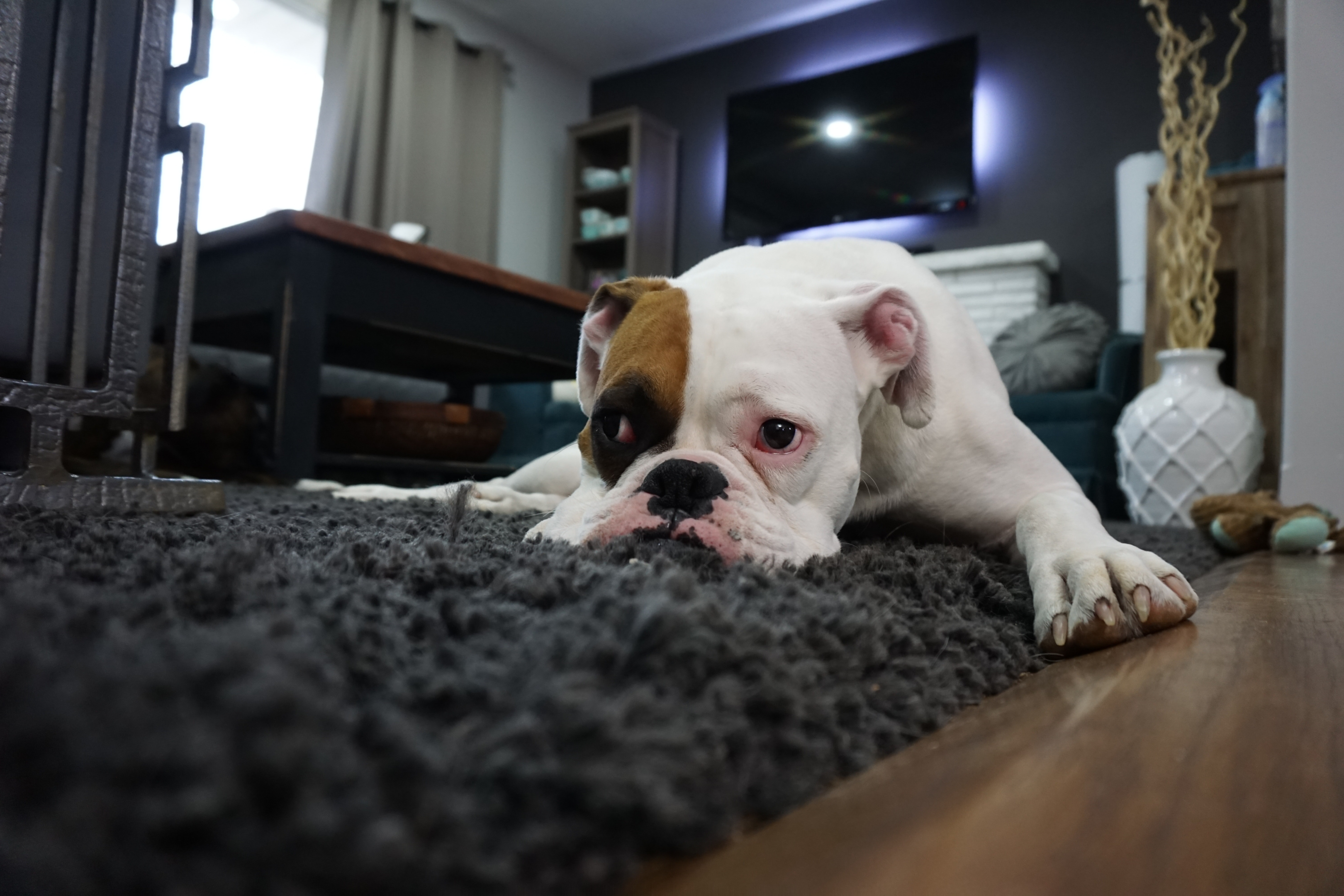Troubled by a Dog Not Eating After Surgery? Discover Vital Solutions Now!

Undergoing surgery can be a tough time for both you and your canine companion. It’s quite common for dogs to show less interest in food after having surgery. This often occurs as a result of the surgery itself and the use of anesthesia.
In this article, we will explore the reasons why a dog may not eat after surgery and provide valuable tips and solutions to help your dog eat and recover properly.
The Normal Healing Process for Dogs
After surgery, it’s normal for dogs to experience a reduced appetite due to the effects of anesthesia, pain, and stress. Dogs may take some time to fully wake up from anesthesia. Their body’s natural response is to focus on healing rather than eating.
Want to help your pooch strengthen their immune system? Read our blog on Immune Support for Dogs: Tips and Strategies for a Healthy Canine Companion.
Common Reasons Why Dogs Won’t Eat Post-Surgery
Nausea and Discomfort
Just like humans, dogs can experience a sense of nausea and discomfort after undergoing a surgical procedure.
The effects of anesthesia and the changes in their body can lead to feelings of queasiness. This causes a reluctance to eat.
Nausea is a natural response as the system adjusts to the medication and healing process.
While it can be concerning to witness your furry friend in this state, understanding that it is a common occurrence can help alleviate worries.
Pain and Discomfort
Surgery often involves incisions and wound healing. It can result in pain and discomfort for your pets.
As they attempt to find a comfortable position to rest and recover, it’s understandable that eating might be a low priority during this time.
The pain around the surgical area can create an aversion to food, as they associate eating with added discomfort. It’s crucial to respect your dog’s need for rest and give them time to heal at their own pace.
Adverse Effects of Anesthesia
One of the primary reasons for a dog’s loss of appetite post-surgery is the lingering effects of anesthesia.
Anesthesia is essential during surgical procedures to keep the dog unconscious and pain-free. However, its use can leave them feeling drowsy and disoriented afterward.
Dogs may take some time to fully recover from the anesthesia, just like us. Their appetite may not return to normal immediately.
Stress and Anxiety
Undergoing surgery is a significant event for dogs. This entire experience can be stressful and anxiety-inducing.
They might not comprehend the reason for their discomfort or the changes happening in their body, leading to heightened stress levels.
This stress can manifest in a temporary loss of appetite, as they are preoccupied with their feelings of unease and uncertainty.
Creating a calm and reassuring environment can help alleviate some of their anxiety and encourage them to eat when they feel more at ease.
Monitor Your Dog’s Recovery Process
Monitoring your dog’s healing after surgery is vital for their post-operative care.
Pay close attention to their behavior and appetite. Changes in eating habits can indicate their overall well-being.
It’s not uncommon for dogs to experience a temporary loss of appetite due to anesthesia, stress, or discomfort.
However, if your dog refuses to eat or their appetite doesn’t improve after 24 hours, contact your vet immediately. Also, observe their surgical site for any signs of infection or complications.
Providing comfort, support, and extra care during this sensitive period will aid their healing and ensure a successful healing process.
Remember, each dog’s recovery is unique, so be patient and attentive to their needs. Your dedication will contribute significantly to their full and healthy recovery.
Is Your Dog Not Eating? Click here to discover effective solutions to boost their appetite!
5 Tips to Help Your Dog Eat After Surgery
After undergoing surgery, many dogs experience a reduced appetite, which can be concerning for pet owners.
However, there are various effective strategies to encourage your furry friend to eat during their healing period.
Understanding the common reasons behind a dog’s decreased appetite and implementing helpful tips can play a significant role in supporting their healing process.
In this section, we will explore valuable tips and techniques to help your dog eat after surgery, ensuring they receive the necessary nutrition for a smooth and speedy recovery.
Tip #1: Use Hand Feeding Techniques
Hand feeding can be an effective way to entice your dog to eat. Offer your dog’s favorite treats or baby food from your hand to encourage them to start eating again.
Tip #2: Provide a Protein-Rich Diet
Proteins are essential for your dog’s healing, as they aid in tissue repair. Offer boiled chicken or a home-cooked meal, ground turkey, or baby food with high protein content to help your dog heal faster.
Tip #3: Avoid Dry Kibble Initially
Dry kibble may be hard for your fur baby to chew and swallow after surgery. Opt for softer, wet food options or moistened dry food to ease the eating process.
Tip #4: Warm Water Can Help
Hydration is crucial for your dog’s healing. Make sure fresh water is readily available, and if necessary, entice your dog to drink by offering water from your hand.
If your dog’s mouth feels dry or sore, add a little warm water to their food to soften it and make it easier to eat.
Tip #5: Gradually Reintroduce Regular Diet
As your dog’s appetite improves, slowly reintroduce their regular diet. The transition from baby food or soft meals to their normal food, mixing small portions at first.
How to Help Your Dog After Surgery

Understanding the unique challenges they may face and learning how to help your dog after an operation will ensure they receive the best care possible.
Here are some ways you can help your dog recover from an operation:
- Minimize Stress and Keep Calm
Creating a calm and stress-free environment is essential for your dog’s recovery. Minimize loud noises and excessive activity that might disrupt their healing process.
- Help Your Dog Move Around
While rest is essential, gentle exercise can also stimulate your dog’s appetite. Short walks and light playtime can encourage them to eat.
- Follow Medication Instructions
If your dog is on medication, make sure you administer it as prescribed by the vet. Some medications may cause a temporary loss of appetite, but it’s crucial for their recovery.
Monitor the surgical site for any signs of infection, such as redness, swelling, or discharge. Infections can cause pain and decrease appetite.
- Contact the Vet if Necessary
If your dog’s lack of appetite persists or worsens, contact your veterinarian immediately. They can assess your dog’s condition and provide appropriate guidance.
In consultation with your vet, consider adding nutritional supplements to your dog’s diet to aid in their recovery.
- Patience and Support
Recovering from an operation takes time, and each dog’s pace may differ. Be patient and supportive throughout the process.
After your dog starts eating again, maintain a healthy and balanced diet to support their overall health and well-being.
Conclusion
A dog who does not eat after an operation is a common concern, but with patience and the right approach, you can help your furry companion through this challenging time.
Offering soft, protein-rich meals like cooked chicken or pre-made baby food, hand feeding, and providing a stress-free environment are just some of the strategies that can help your dog get back to their normal, healthy self.
Remember, if your dog’s appetite doesn’t improve or if you notice any concerning symptoms, consult your veterinarian immediately for expert advice and support.
FAQs
How long can a dog go without eating after surgery?
The duration a dog can go without food after surgery varies from one individual to another.
Generally, most dogs may experience a reduced appetite for the first 24 to 48 hours post-surgery due to anesthesia and the stress of the procedure.
However, if a dog continues to not eat beyond this timeframe, it is essential to seek veterinary attention promptly.
When should I worry about my dog not eating after surgery?
If your dog goes without food for more than 24 hours after surgery, it’s a cause for concern.
A lack of appetite beyond this timeframe may indicate underlying issues or complications, such as pain, infection, or gastrointestinal problems.
In such cases, contacting your vet immediately is necessary to assess your dog’s condition and provide appropriate care.
How long does it take for a dog to start eating after surgery?
The time it takes for a dog to start eating after surgery can vary. Many dogs begin to show interest in food within the first 24 to 48 hours post-surgery, while others might take a bit longer.
Factors such as the type of surgery, individual recovery speed, and the approach used to encourage eating can influence the timeline.
Patience, offering enticing options, and closely monitoring your dog’s progress will aid in their eventual return to eating normally.
